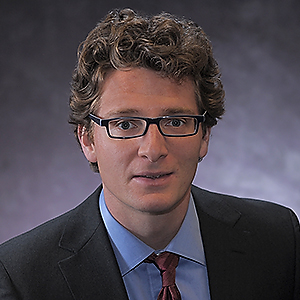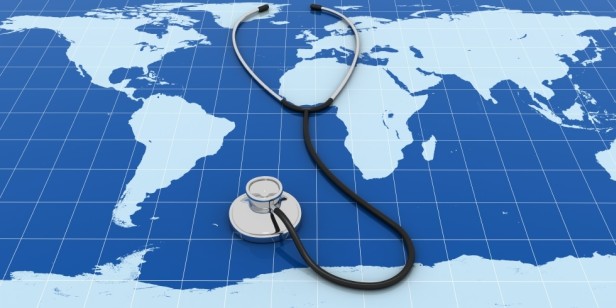Health care reform dominates the news as Dems struggle to push their reform package through Congress. I applaud the effort, but can’t help wondering why climate change is being left out of the debate.
Research shows that climate change is harmful to our health, raising rates of cancer and of respiratory and neurological diseases. So why aren’t climate scientists taking advantage of healthcare reform to spotlight these very real and worrisome connections? What better platform from which to advocate for their own favorite cause: comprehensive climate legislation that sets a strict limit on greenhouse gases.
Puzzled by the silence, I called Dr. Matthew Nisbet at American University in Washington, D.C. Nisbet is a strategic communications specialist who focuses on science, the environment and public health. Since his freshman science writing class at Dartmouth College, Nisbet has been intrigued by how media portrayals of science issues, particularly controversial ones such as climate change, can shape public opinion and behavior and also public policy debates. Since then, he’s been fascinated by the “intersection” of science and policy. “How could government agencies, science organizations and environmental groups, and also journalists, be more effective at engaging the pubic, communicating about the relevance of these issues, motivating and enabling learning, and empowering members of the public to participate politically and in their local communities?” asks Nisbet. Good question, but first things first:
Q. A climate policy that limits the environmental pollutants that cause cancer, respiratory and other diseases would save billions of dollars — not to mention lives. That seems like a win-win, no? So, why has the climate science community been largely absent from the healthcare reform debate?
 Matt NisbetAmerican UniversityA. In the 2007 IPCC report [that’s the United Nation’s Intergovernmental Panel on Climate Change], in the sections on human dimensions of climate change, the public health consequences are detailed. The authors also talk about the deeper adaptation strategy in order to protect against these health consequences. The CDC [Centers for Disease Control] and Howard Frumkin in particular, has written a series of articles in places like the Journal of the American Medical Association and the American Journal of Public Health discussing the connection between climate change and public health and the need for adaptation. The Lancet has published a whole series of synthesis articles on the research. So the efforts within the academic literature are there.
Matt NisbetAmerican UniversityA. In the 2007 IPCC report [that’s the United Nation’s Intergovernmental Panel on Climate Change], in the sections on human dimensions of climate change, the public health consequences are detailed. The authors also talk about the deeper adaptation strategy in order to protect against these health consequences. The CDC [Centers for Disease Control] and Howard Frumkin in particular, has written a series of articles in places like the Journal of the American Medical Association and the American Journal of Public Health discussing the connection between climate change and public health and the need for adaptation. The Lancet has published a whole series of synthesis articles on the research. So the efforts within the academic literature are there.
Oftentimes, with any social problem, and climate change is no different, once a particular narrative or frame of reference becomes locked in about that issue it’s very difficult to break from that narrative. The dominant narrative has been that climate change is an environmental problem with environmental impact, or it’s a political fight. That’s how it’s generally been reported on by mainstream journalists. Conservatives have been focusing on the uncertainty of the science and the alleged devastating economic impact of any action.
Those are the narratives that have come to dominate news coverage and commentary. Those are the mental boxes that the public and policy makers apply to the issue. There’s a lot of momentum and traction to those interpretations, and it takes a lot of effort to interject new interpretations.
Only recently has there been an emphasis on how climate change connects to other problems and other sectors in society. For example, there’s been a lot of focus on the economy, and action on climate change as a way to grow the economy. Climate change and public health has been dramatically under-communicated, historically. Taking action on climate change should really be thought of in terms of preventive health measures that make our communities better places to live, make our lives healthier, and also reduce costs in the long run. I’ve mentioned to journalists the fact that the public health consequences of climate change have gotten very limited attention. An analysis I recently completed finds that historically The New York Times and the Washington Post have mentioned public health consequences in fewer than 5 percent of articles about climate change.
Q. So, there’s lots of evidence and awareness about the link between climate change and public health in the scientific and public health communities, but that isn’t being mirrored in the mainstream press coverage of either. How can we introduce new “interpretations,” as you put it?
A. It takes a kind of a top down stimulus from institutions and opinion leaders, starting with the White House and major government agencies. Imagine, for example, if you were to introduce new attention to the issues with a Surgeon General’s report on the health consequences of climate change. Those reports have had a lot of moral authority in the past [think tobacco], and they gain a lot of media attention. It’s a way to spread the discussion of climate change across different segments of society.
Q. You write about “framing” the scientific discussion, putting scientific findings in a more understandable and personally relevant context. If you were a paid media consultant advising the climate science community, how would you suggest they take advantage of the current attention on healthcare reform to re-frame the debate and advance their cause for action on climate change? Who should they be talking to? What should they be saying? And how should they be saying it?
A. Right now there isn’t an easy answer. There hasn’t been enough specific work done on connecting climate change to public health or healthcare reform. The first recommendation is that accomplishing that goal will take a lot of resources, because there’s so much competing noise around the healthcare debate and around climate change generally. Resources first need to be spent on careful audience research and message development around climate change and public health. [Nisbet is studying just that.]
Some of the general principles would be to first understand the segment of the public who are very concerned about healthcare reform but also ambivalent about climate change. That could be a number of different groups: it could be non-college educated suburban mothers who are concerned about health insurance for their families; it could be minority mothers living in urban areas, who are concerned about health access for their kids and also asthma, allergies and respiratory problems that their kids face; it could be people primarily concerned about the long-term cost of health insurance — male independents, who have more of a fiscal conservative orientation, who haven’t dismissed climate change but don’t see it as a leading priority.
Then the strategy would be to come up with a message design that connects the dots for those groups who are already sensitive to the healthcare debate, but not necessarily concerned about climate change. [You’d want] to push this group of people into the coalition of groups around climate change by way of the health insurance debate. The key there is to identify the information sources they use (news outlets, entertainment media, etc.), and design a message that isn’t too focused on climate change as a problem, but rather the actions on climate change need to be talked about in terms of their clear, tangible benefits to health and healthcare cost.
Q. We’ve been talking about climate scientists doing more to explain the ramifications of climate change and promote action. But has the ongoing Climategate controversy hurt their reputation and credibility? If they were to suddenly join the debate, would anyone even pay attention?
A. Despite the conventional wisdom that they’ve lost the public trust in the wake of Climategate, all the polling indicators both before and after Climategate show that scientists generally, and climate scientists specifically have almost unrivaled public trust. Scientists are admired as a profession. Science is strongly trusted as an institution. The challenge is how to use that communication capital successfully and not undermine it.
In the health reform debate, any efforts by scientists that appear too partisan are likely to undermine the public trust. So, if scientists started running TV ads saying, “Support healthcare reform NOW,” brought to you by a group of scientists, that’s probably not a wise activity. On the other hand, if scientists were to partner with other opinion leaders in their communities, such as business leaders or clergy, and sponsor community forums about the health risks of climate change and possible policy solutions, without a partisan agenda, that’s probably the role best suited for them.
Q. So, the ongoing, high-profile debate over healthcare reform is a great opportunity to start a contextual discussion about climate change; a kind of “teachable moment” to explain how climate change has very tangible and very personal health consequences. Are there other “teachable moments” out there, in disciplines other than healthcare, that the climate community should target?
A. The White House has been pushing climate change as an economic issue. Insurance companies, businesses and others have added climate change to the criteria by which they make decisions about health and health coverage. There’s going to be a trickledown effect. The fact that climate change is a criteria is becoming institutionalized and will, down the road, influence members of these organizations and the wider public and begin to be reported on in the news media. [Stories about climate change] will stretch beyond the science and environment beats, and become part of the health and business beats and constitute more of the political coverage.
But one area not getting enough attention is the focus on how the faith-based community is responding to climate change; not just religious communities discussing climate change as a moral issue, but also ethics experts at universities discussing the ethical implications of climate impacts. The idea that climate change is one of society’s leading moral and ethical dilemmas is under-communicated. There’s some work on the part of ethicists to try and engage journalists about how to cover these questions substantively. There’s an opportunity for environmental leaders, scientists, and public health leaders to partner with religious leaders [on this issue].



